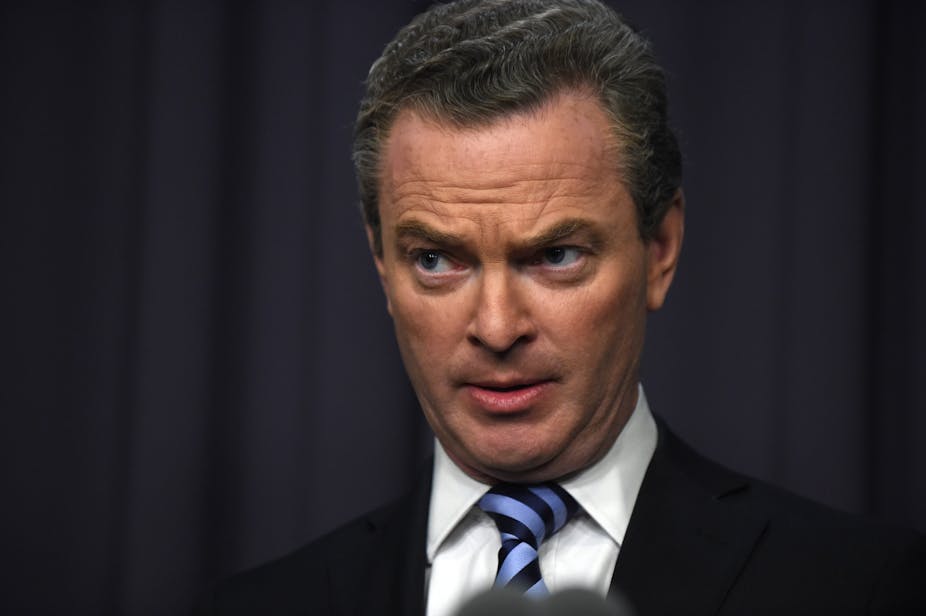The Federal Education Minister Christopher Pyne announced today that funding for scientific research infrastructure will no longer be tied to the passage of the government’s higher education reforms.
However, Minister Pyne has only committed to an additional 12 months of funding, leaving the scheme with some uncertainty over the longer term.
As recently as Sunday, Minister Pyne was threatening to cease funding the A$150 million National Collaborative Research and Infrastructure Strategy (NCRIS) if the Senate failed to pass the government’s controversial legislation to deregulate the university sector.
Had NCRIS been defunded, as many as 27 research facilities across the country may have closed, potentially costing up to 1,700 highly skilled jobs that are funded by NCRIS. This, in turn, would have had knock-on effects on the roughly 35,000 scientific researchers conducting research at NCRIS facilities.
The Australian scientific community lashed out at the government following the threat of defunding NCRIS, with the National Research Alliance releasing an open letter to the government on March 5 urging the government to continue funding NCRIS.
Catriona Jackson, CEO of Science & Technology Australia, said the Australian research community would be pleased that the funding will no longer be linked to the passage of the higher education reforms.
“Scientists are enormously relived that research infrastructure will continue to be funded, and not remain mired in the higher education debate,” she said.
“There are 27 facilities around the country that now have a future, and they didn’t think they did. But it’s not just about jobs, it’s about the backbone of the reserach in this country. We can’t do science without it. It’s sad that we got to this point at all.”
The President of the Australian Academy of Science, Professor Andrew Holmes, also welcomed the decision to continue funding NCRIS.
“This decision will mean researchers can get on with the job of developing the new technology and innovative ideas that Australia needs for the future,” he said.
However, there is concern about where the money will come from to fund NCRIS, with Minister Pyne saying it will be offset against other budget measures, without giving specifics.
“We will be asking for a clear indication of where the money will come from,” said Jackson. “If this money comes out of the research block grant, or money otherwise slated for research, that is not a win. It is not OK to come from money that would have otherwise gone to research.”
Astronomer and Nobel Laureate, Professor Brian Schmidt, also expressed relief that NCRIS would continue to be funded, although he would like to see a longer funding cycle to prevent NCRIS from being the subject of political debate every 12 months.
“I really very grateful that this has happened. Most of the carnage has been avoided. But we certainly need a longer term cycle,” he said.
He is looking forward to the recommendations offered by the Research Infrastructure Review looking at Australia’s research infrastructure headed by businessman Phillip Clark and Chief Scientist Ian Chubb, which is due to report in May this year.

